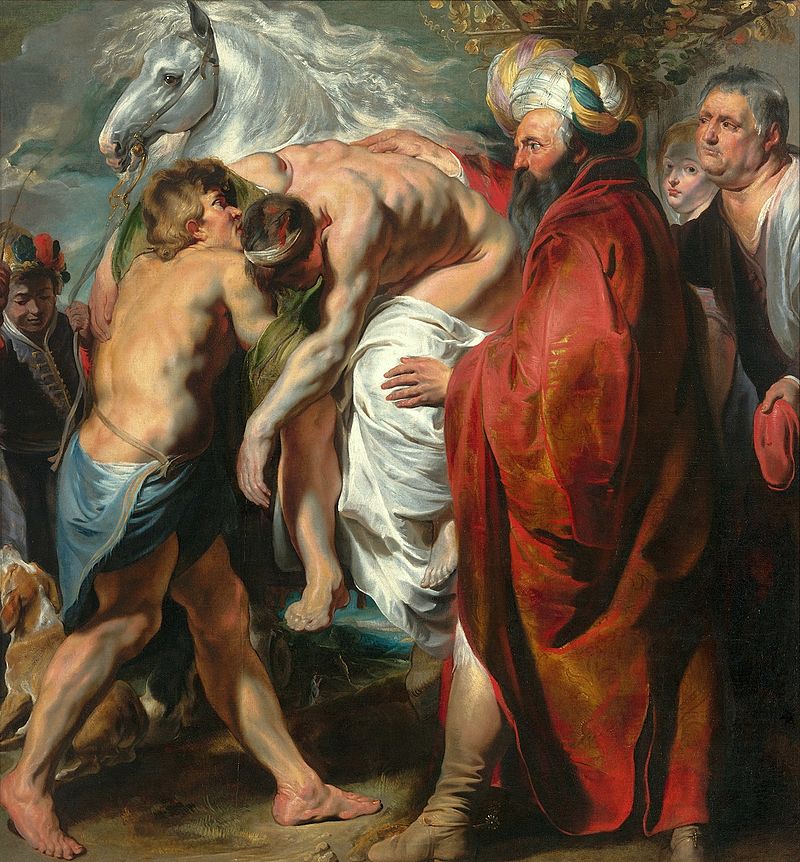
Part 1: Taking the Long View | Part 2: Anticipating the Then | Part 3: Living in the Now—Confident Expectation | Part 4: Living in the Now—Patient Endurance
God has shown us a glimpse or two of how this life transitions to the eternal. The details are sketchy, but the overall picture is clear: we have perfect fellowship with the infinitely, eternally, unchangeably good God, and we serve him meaningfully and perfectly, having shed our personal flaws and having entered an unbroken cosmos. In the meantime, the Scripture tells us, we endure the difficulties of the present broken world because we are eagerly anticipating what is to come.
But we’re not just hanging on, waiting for the good stuff. And we’re not just passive, waiting for God to do what he’s promised.
There’s good stuff now. Lots of it. And there’s work to be done—joyously, effectively, redemptively.
Jesus himself told us how our energy should be directed during these days of anticipation.
Shortly before his death, he told a story about a nobleman who “went to a distant country to get royal power for himself and then return” (Lk 19.12). He gathered his servants, gave them resources, and said, “Do business with these until I come back” (Lk 19.13).
Our more familiar KJV renders that statement, “Occupy till I come.” The less formal NIV says, “Put this money to work until I come back.”
And the story ends with two servants being rewarded, on his return, for their diligence, and one being condemned for being more concerned with security than productivity.
Did Jesus intend for this story to guide our time as we wait for his return?
You think?
Jesus set the example himself. As a boy of twelve—too young to be a rabbi, at a time too early for the death his Father had planned for him—he wasn’t playing the 1st-century equivalent of video games. He was about his Father’s business. When the family was in Jerusalem—as it likely was at least three times a year, for the pilgrimage feasts—he headed for his Father’s house. And he was surprised that his parents didn’t think to look for him there first.
The Father’s business.
The Father has invested in all of his people, in different ways. We’re all good at something—some of us at many things—and we can do those things for him, and his work, and his people. There’s great joy in doing something well; God has kindly set up the world so that our greatest joy is in doing well those things for which we are gifted—and thereby accomplishing his work, showing all who see us the glories of the invisible God.
I started life on a little family farm. There’s great satisfaction in working hard all day and then seeing the visible results of your labor—the plowing, the planting, the irrigating, the weeding, the piles of harvested corn, the shucked ears hanging to dry, the ground corn meal, the well-fed cattle, the milk, the butter, the cheese, the beef. Every day there’s a new opportunity for the joy of accomplishment and the visible and tasty fruits of your labor.
This week is Thanksgiving in the USA—the meal that takes hours to prepare and more hours to clean up after, but that lasts, seemingly, just 15 minutes. Yet we all know it’s worth it—not just for the 15 minutes of turkey and gravy and mashed potatoes and cranberry sauce, but for the shared experience and fellowship.
How much more is our lifetime of preparation for the eternal feast worth it? Even in the preparation there’s joy of visible accomplishment—changed lives, examples of mercy and grace—and joy of fellowship, working together toward a goal that’s bigger than all of us.
When The Day arrives, his servants shall serve him (Re 22.3).
Better get some practice.
20 The one who testifies to these things says, “Surely I am coming soon.”
Amen. Come, Lord Jesus!
21 The grace of the Lord Jesus be with all the saints. Amen (Re 22.20-21).
Photo by Aaron Burden on Unsplash

